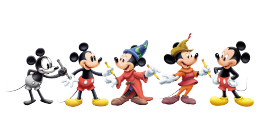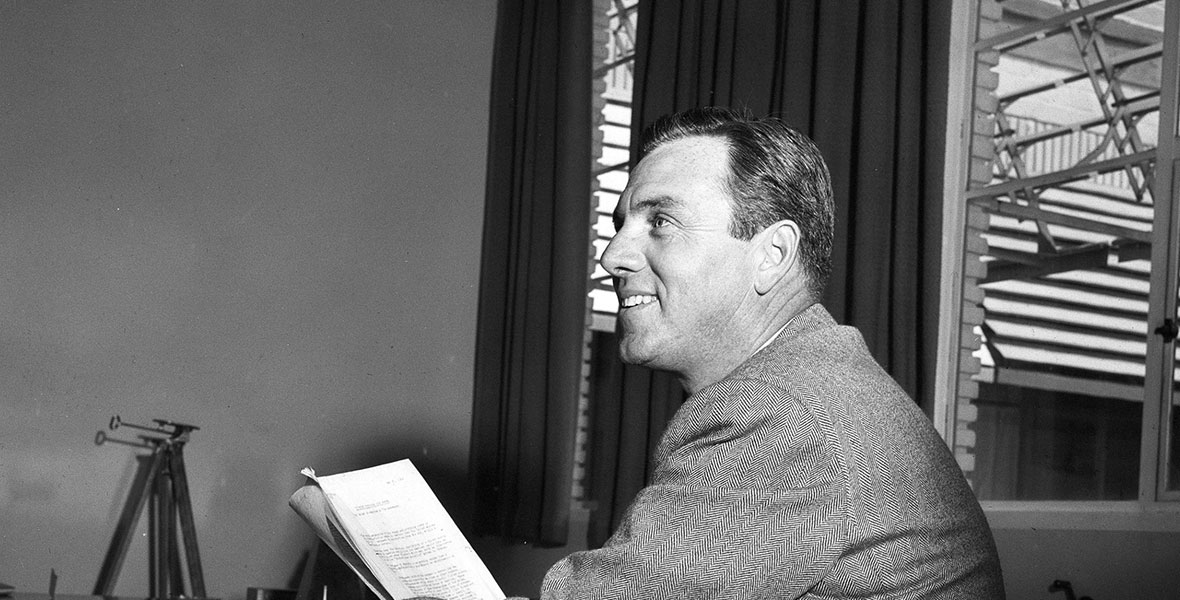In 1930, David Hand joined The Walt Disney Studios as its 21st and most ambitious young animator. It didn’t take long for Walt Disney to notice David’s knack for getting things done, and so he moved Dave (as he was called by his friends) into directing animated shorts, such as Pluto’s Judgement Day, Alpine Climbers, and Little Hiawatha. Later, in 1933, Walt promoted him to Production Supervisor of the Studio, and, around that same time, entrusted Dave with directing the first full-length animated feature, Snow White and the Seven Dwarfs.
Dave “was cavalier in transforming Walt’s dreams into animation,” recalled animators and Disney Legends Frank Thomas and Ollie Johnston in their book Disney Animation: The Illusion of Life. They added, “Dave knew enough to recognize quality, and if Walt said, ‘Let’s get that into the picture,’ Dave would make sure that it got in and just that way. If Walt said, ‘We can save money here; let’s keep the cost down,’ Dave would use every shortcut in the book. He never confused his own views or ambitions with Walt’s.”
Born on January 23, 1900, in Plainfield, New Jersey, Dave attended the Chicago Art Institute. After school, he landed a job at the J.R. Bray Studio in New York; there he met Max Fleischer, for whom he later animated the “Out of the Inkwell” series. In 1928,
Dave took an interest in The Walt Disney Studios, which had just produced Steamboat Willie—the first animated cartoon to have synchronized sound. Purely on spec, he decided to visit California and apply for a job at the Studio.
During his 14 years with the company, Dave worked on about 70 shorts and three features. He served as animator on the first Technicolor cartoon, Flowers and Trees, which won the first Oscar® for Best Short Subject (Cartoons) in 1933. He later directed Who Killed Cock Robin?—which was nominated for an Academy Award®—and Three Orphan Kittens, which won an Oscar® in 1936. He also served as supervising director on Bambi and animation supervisor on Victory Through Air Power, which was his last Disney project.
In 1944, Dave was invited to England by J. Arthur Rank to set up an animation studio. There he created the Animaland and Musical Paintbox cartoon series, while influencing a generation of British animators. In 1951, he returned to the United States to pursue a career in industrial filmmaking.
David Hand passed away on October 11, 1986, in San Luis Obispo, California.



